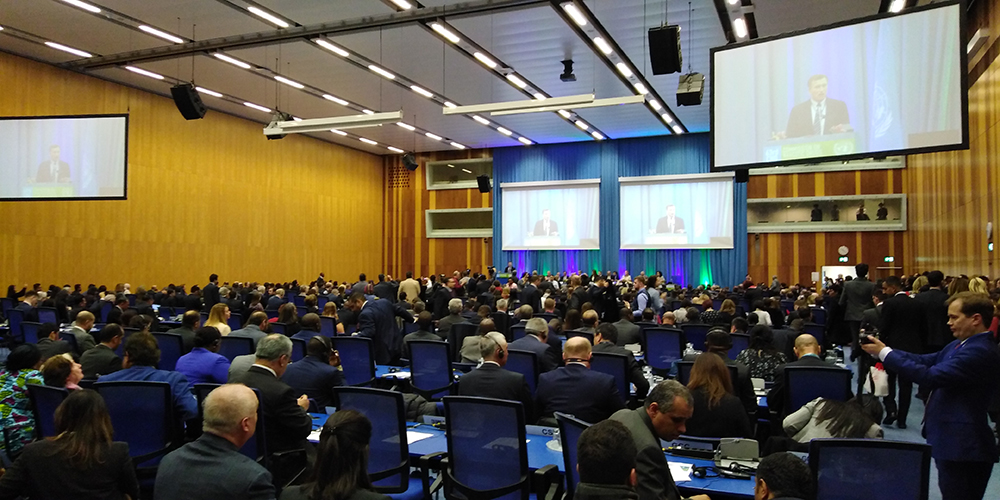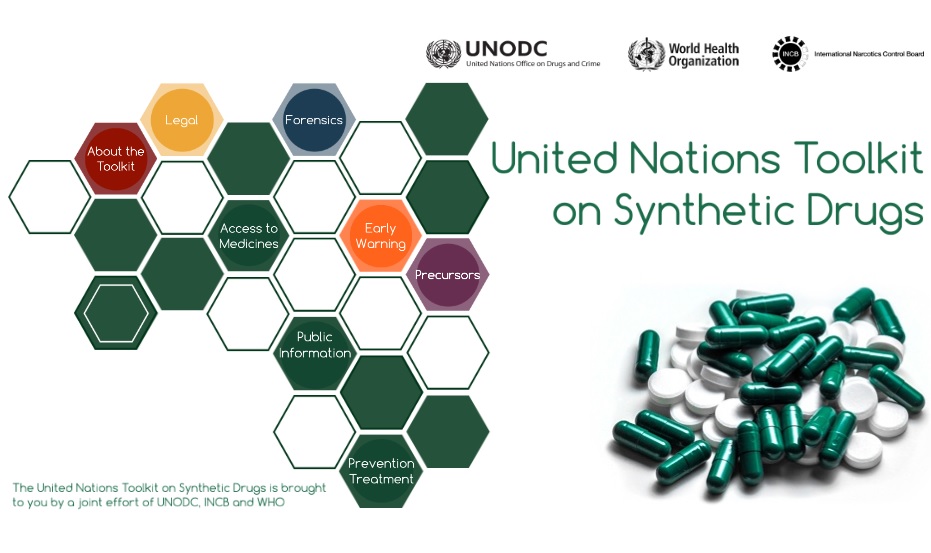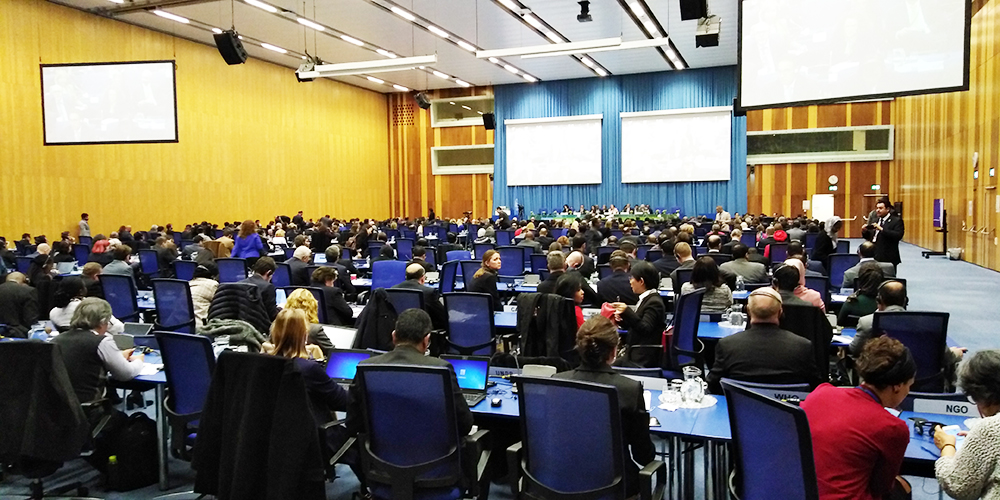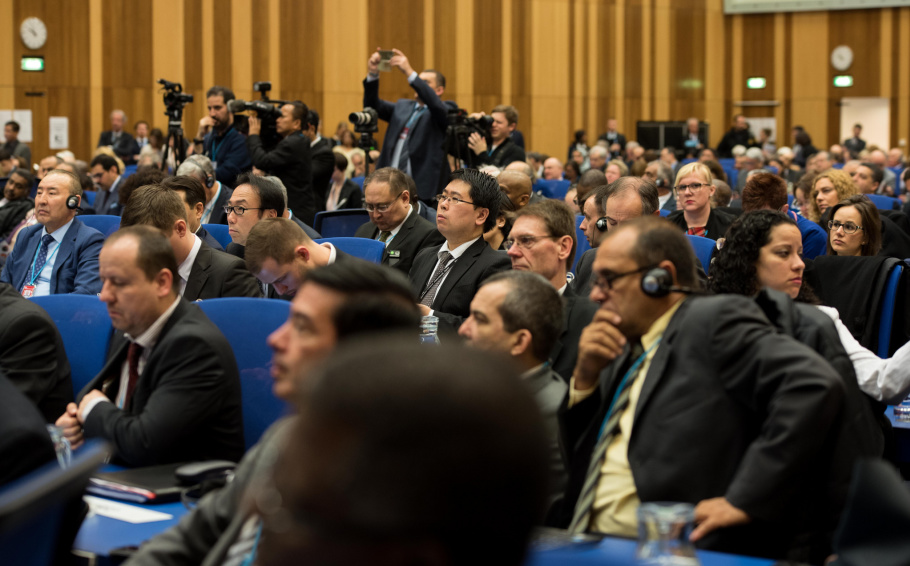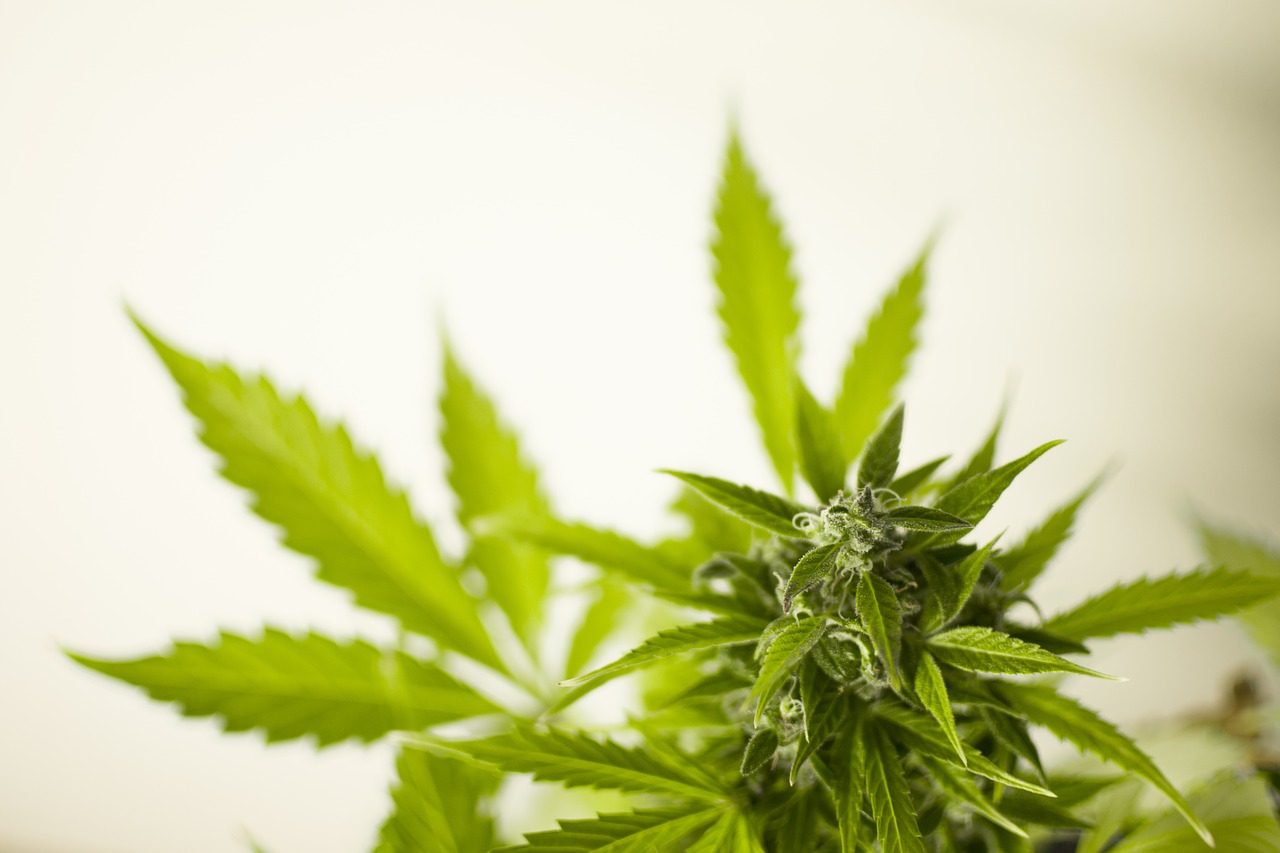The 63rd session of the Commission on Narcotic Drugs (CND) started on 2 March in Vienna, Austria. The CND is a functional commission of the United Nations Economic and Social Council (ECOSOC) and is the central drug policy-making body within the United Nations system. It monitors the world drug situation, develops strategies on international drug control and recommends measures to address the world drug problem.
As expected, the meeting started with an information on the coronavirus outbreak. Austrian Health Authorities have mandatory reporting cases – no travel restrictions currently. 1826 tests in Austria, 15 confirmed.

New UNODC Executive Director Ghada Waly was presented. UNODC will be launching on 26 June the World Drug Report, hoping spurring dialogue and action.
INCB President: The Board expresses its serious concern with the continued reports of great human rights violations perpetrated in the name of drug control. We call for the immediate end to extrajudicial responses to suspected drug criminality and sue. When drug control measures violate international human rights standards, they also violate the drug control conventions.
Director General of WHO (video link): The increase in the use of psychoactive drugs claims hundreds of thousands of lives every year.
Croatia on behalf of EU: [a number of Balkan states are also aligned with the statement]: The situation is worsening in many parts of the World. The EU and its MS stress the importance of rebalancing the public health and human rights aspects in our responses to the problem. The health consequences of drug use are more severe and wide-spread than we thought; NPS emerging, synthetic opioids are a serious threat as is the non-medical use of painkillers. EU’s recent reports remind us of the severity of the issue but also underscore the complexity of the problem so we need a balanced and comprehensive approach. We are planning to continue to support drug-related commitments to support human rights. We need to develop policies based on evidence-based practice. Civil society contributes valuably to complement our understanding of the world drug situation and also in designing national, regional prevention and harm reduction responses.
Side events
Shanghai Cooperation Organization and the UNODC in the Fight Against the Illicit Drug Threat: Countering Drug Trafficking via Darknet
Ghada Waly, Executive Director of the UNODC: reports show half of dark net activities are associated with drugs. International operations have had some high profile successes in closing dark nets, including Silk Road, Alpha B, and Hanza. However, more spring up in their place.
Vladimir Norov, SCO Secretary-General: According to specialist evaluations, up to 60% of transactions are of narcotic drugs, instead of cash payments crypto currency is used to settle accounts. The process leads to risk of involvement of money laundering, hinders the local authorities attempt to counter narcotic drug trafficking and hinders the stability of young people and states. This business is growing – in 2018 less than 600 million US dollars, 2019 more than 800 million US dollars a year
Drug reform: From a punitive to a supportive approach – The Norwegian proposal
Minister Bent Høie, Norway: Replacing punishment by support and decriminalising drug use was an initiative prior to UNGASS 2016. It came from civil society. In 2018 the government declared we needed to transit away from punishment into assistance, treatment and follow-up. We will conduct drug policy reform to ensure better services to people who use illicit drugs, transferring the responsibility of questions of personal use from justice to health service. A government mandated committee has concluded a report, thorough and interesting, “from punishment to support”, which will be the subject of a public hearing. On the basis of this, the government will submit a proposal to the parliament in spring 2021.
Gilberto Gerra, UNODC: The Conventions, in 1988, clearly says in art 3 that the possession for personal consumption needn’t be punished; there are alternatives. UNGASS2016 reiterates this position. It is important that what has been said by Portugal and Norway; the Conventions allow this and this is not legalisation. The motto of our programme with WHO, ten years ago, nothing less than what is provided for any other chronic disease. No stigma, no discrimination, full access to healthcare.
Devora Kestrel, WHO: We support a move away from a criminal justice approach to a social support approach. To ensure support for people who use drugs. While it is recognised that one size doesn’t fit all, drug policies are moving towards a more balanced and comprehensive approach that highlights public health and development, which is consistent with the original purpose of the Conventions: promoting the health and welfare of humankind.
Mr. Zaved Mahmood, Office of the High Commissioner for Human rights (OHCHR): The criminalization of personal drug use and possession impedes realization of the human right to health. Criminalization of possession and personal use of drugs often results in disproportionate sentencing in addition to hindering persons in need of treatment for drug use from receiving such treatment. Criminalization of drug use and minor drug offenses also aggravates the stigmatization of and discrimination against people who use drugs. Evidence indicate that decriminalization, in tandem with “the provision of a continuum of support, prevention and treatment measures, can result in a decrease in overall drug use and in the drug-induced mortality rate.” Three international drug control conventions afford flexibility to introduce non-criminal responses to the possession of drugs for personal use.
Jamie Bridge, Vienna NGO Committee on Drugs: VNGOC has long held the position that greater attention needs to be given to health and human rights. This means providing evidence-based prevention, treatment, rehabilitation, social reintegration, mental health, harm reduction and recovery services. It means working closely with people who use, or used, drugs to ensure that services meet their needs and are fit for purpose.
Alexis Goodeel, EMCDDA: The idea is that higher penalties deter use. We studied the situation and found no direct link of causality. No clear impact of penalties on use. Recent research on what makes policy work suggest taking into account three levels: System (wording of the law, definition of legislation), Provider (criminal justice and health system), Client (experience and perceptions of the system). Punishment has nothing to do with a medical or public health approach. Especially for women and minority populations that face bigger barriers to access to health and other services.
Reducing health risks of the use of NPS in EECA region
Organized by Estonia and Moldova and Eurasian Harm Reduction Association, with panellists from UNODC and Eurasian Network of PWUD.
Main message from the event is that users switch from traditional drugs to new substances, while appropriate harm reduction services are missing. The darknet plays a big role in the rise of NPS in the EECA. We need to be proactive about creating and implementing harm reduction initiatives on the dark web.
David Subeliani (ENPWUD): The states in general are not ready to respond to NPS posed problems. People reach for alternatives before the legal system can respond to the new market dynamics. If we squeeze out substances from markets, users will find ways to achieve similar effects with other means. I saw a fast change on the drug scenes in Easter European Member States – cities have moved on from traditional illegal drugs to whatever the market was able to provide. A very aggressive takeover on the market. It increased the risk of infections as the effects are wearing off maybe faster and users might need to administer more often.
Eliza Kurcevic (EHRA): We conducted a research with Swansea University about NPS use in Belarus and Moldova to collect data on use, needed services, etc. Our recommendations: periodic data collections from various stakeholders, research risks and consequences on NPSC consumption, adjust harm reduction programs and implement relevant interventions, adapt existing interventions and ensure effective work together with the affected populations, review repressive policies and redesign it based on evidence.

Health Responses to the Opioid Poisoning Crisis: On-the-Ground Experiences and International Implications
Fatal drug-related overdose is a pressing health crisis in North America. Highly potent synthetic opioids, including fentanyl and analogues, are increasingly present in the unregulated opioid supply and have contributed to unprecedented increases in overdose deaths. Several countries in Europe have also recently experienced a rising loss of lives from accidental opioid overdose. While the expanding opioid poisoning crisis has been a focus of international attention in recent years, discussions have primarily focused on supply reduction, rather than health, interventions.
Asma Fakhri, Coordinator, UNODC Opioid Strategy, presented UNODC strategy pulled together in response to opioid crisis. 5 pillars for balanced framework to respond to opioids.
- Early warning and trend analysis: generating evidence in support of effective policy decisions and operational responses
- Rational prescribing and access to opioid for medical and scientific use: promoting interagency cooperation in addressing the non-medical use of opioids
- Prevention and treatment programmes: strengthening and supporting prevention and treatment programmes related to opioids
- International law enforcement operations to disrupt trafficking: enhancing operational activities to prevent the diversion and trafficking of synthetic opioids
- Strengthening national and international counternarcotic capacity: raising awareness, sharing best practices and promoting international cooperation
Meetings
CND is an excellent opportunity to meet with those involved in drug policy from all around the World and from all sectors. Certainly, most of the short meetings in corridors were with those from our region, but also we had a good exchange with EMDCCA Director Alexis Goodeel.
Meeting with Dr Christos Koumitsidis, Greek Drug Coordinator
CND was an opportunity to meet with Dr Koumitsidis who, due to the professional obligations he has in the UK was not able to join the Dialogue we had in Belgrade in February.
Three main points characterise situation in Greece: homelessness, immigrants and cooperation between authorities and CSOs
There is no Drug strategy so far. Dr Koumitsidis expects that Government will adopt one this spring and the Action plan in summer.
He was interested to hear about experiences in other countries. We presented him the results of the recent SEE government – civil society dialogue on drugs 2020 and offered to organise the next in Greece.
We also expressed concern about the situation of our member organisations and other civil society organisations from the area of drug policy in Greece.



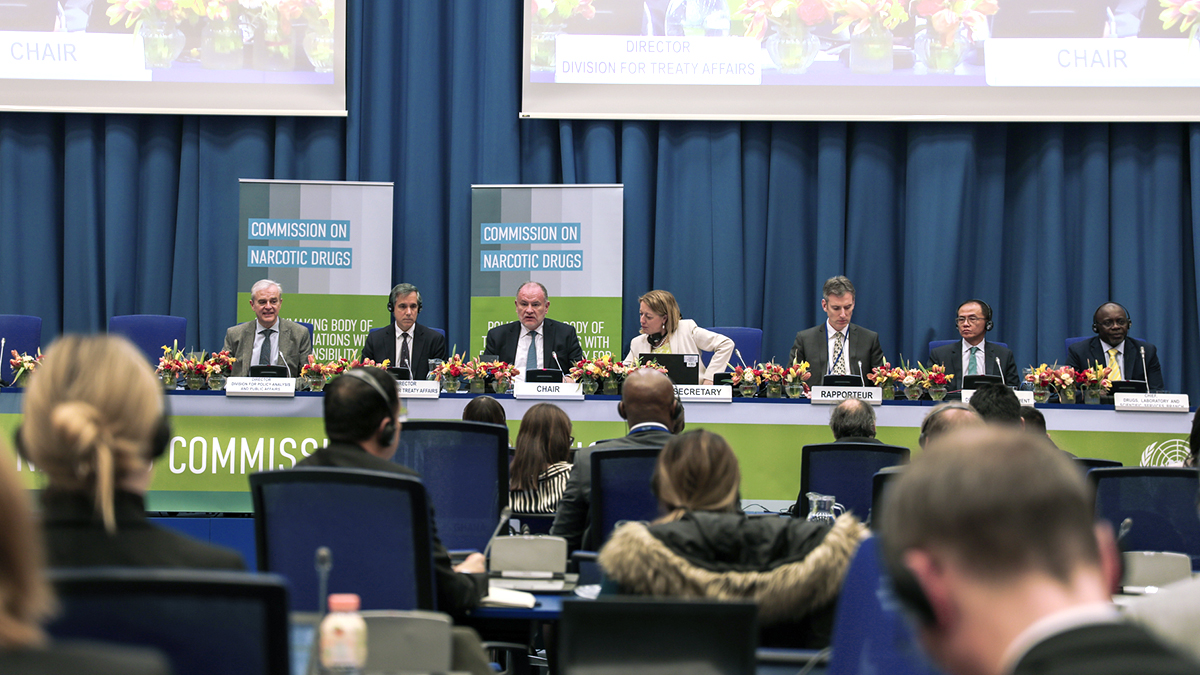

 DPNSEE President Nebojša Djurasović, Board Member Marios Atzemis, Executive Director Milutin Milošević and several other member organisations’ representatives participated in the event. For the first time, DPNSSE participated in the meeting in full capacity as an ECOSOC-accredited NGO.
DPNSEE President Nebojša Djurasović, Board Member Marios Atzemis, Executive Director Milutin Milošević and several other member organisations’ representatives participated in the event. For the first time, DPNSSE participated in the meeting in full capacity as an ECOSOC-accredited NGO.

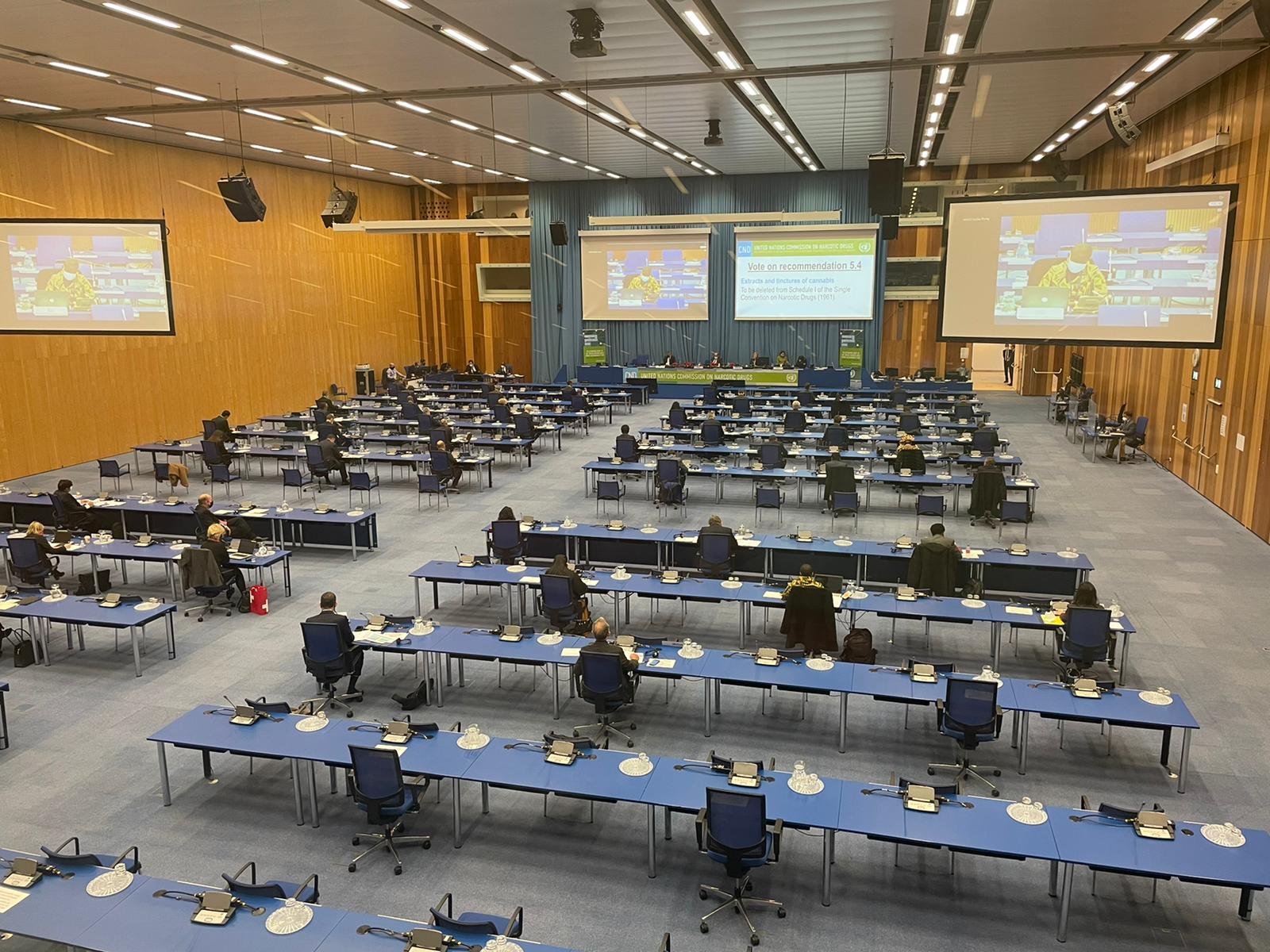

 The formal CND/UNODC statement about this decision is available
The formal CND/UNODC statement about this decision is available 